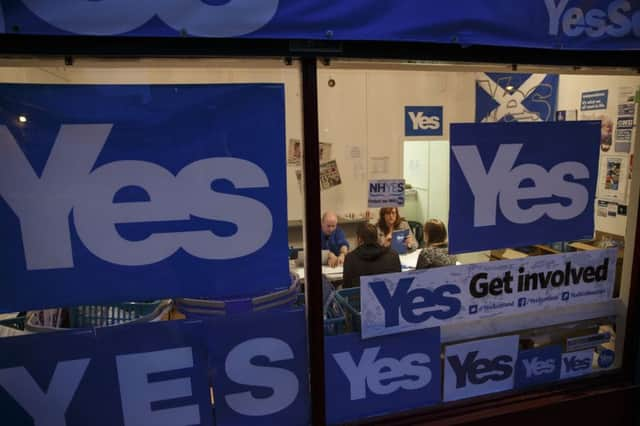Scott Macnab: Independence back up the agenda?


Even defeat in last year’s independence referendum failed to diminish the appeal of the SNP, with party leader Nicola Sturgeon taking its popularity to new heights.
The party is poised to deliver another political earthquake today in one of Labour’s last strongholds, with victory north of the Border in a UK election. And not just victory: Sturgeon’s party is poised to sweep all before it and seize up to 50 of Scotland’s 59 Westminster seats.
Advertisement
Hide AdAdvertisement
Hide AdIt makes the question of a second independence referendum inevitable. Sturgeon has been keen to stress this election is not about the constitution. But having declared last year that a referendum was a “once in a generation” issue, she now intriguingly says a change in “material circumstances” could bring about another.
What could this mean? The prospect of the Clyde-based Trident nuclear weapons system being renewed has been set out as a “red line” by the SNP, who want it scrapped. The problem here is that both Conservatives and Labour back renewal and, more importantly, polling evidence suggests that public opinion in Scotland is split down the middle on the issue, if not marginally in favour of retention. It doesn’t seem something that could fire up the public enough to return to the slog of another referendum campaign.
The shortfall in the new powers being pledged to Holyrood as part of the Smith Commission package is another major “grievance” issue for the Nationalists. But most Scots are unclear about the powers which Holyrood has at the moment. It’s hard to see how the detail of more devolution would be enough to prompt a popular backlash and demands for Scotland to go it alone.
This all brings us to Sturgeon’s warning that a UK government without any Scottish MPs would lack legitimacy. As polls suggest a wipeout in Scotland for the Tories and Liberal Democrats could be on the cards, it is a realistic scenario. And Nationalists are likely to seize on this as an open defiance of the popular will north of the Border.
The idea that Scottish MPs are being ignored purely on the basis of being Scottish is a powerful message, just as the Tory campaign south of the Border questioning the legitimacy of Nationalist MPs holding any balance of power seems to undermine the democratic choice of Scots. And all this with the backdrop of a new wave of Tory-imposed austerity starting to bite against the popular will of Scotland.
Sturgeon may sense the moment is right to include a referendum pledge in next year’s Holyrood manifesto and go to the people within the next few years.
SEE ALSO